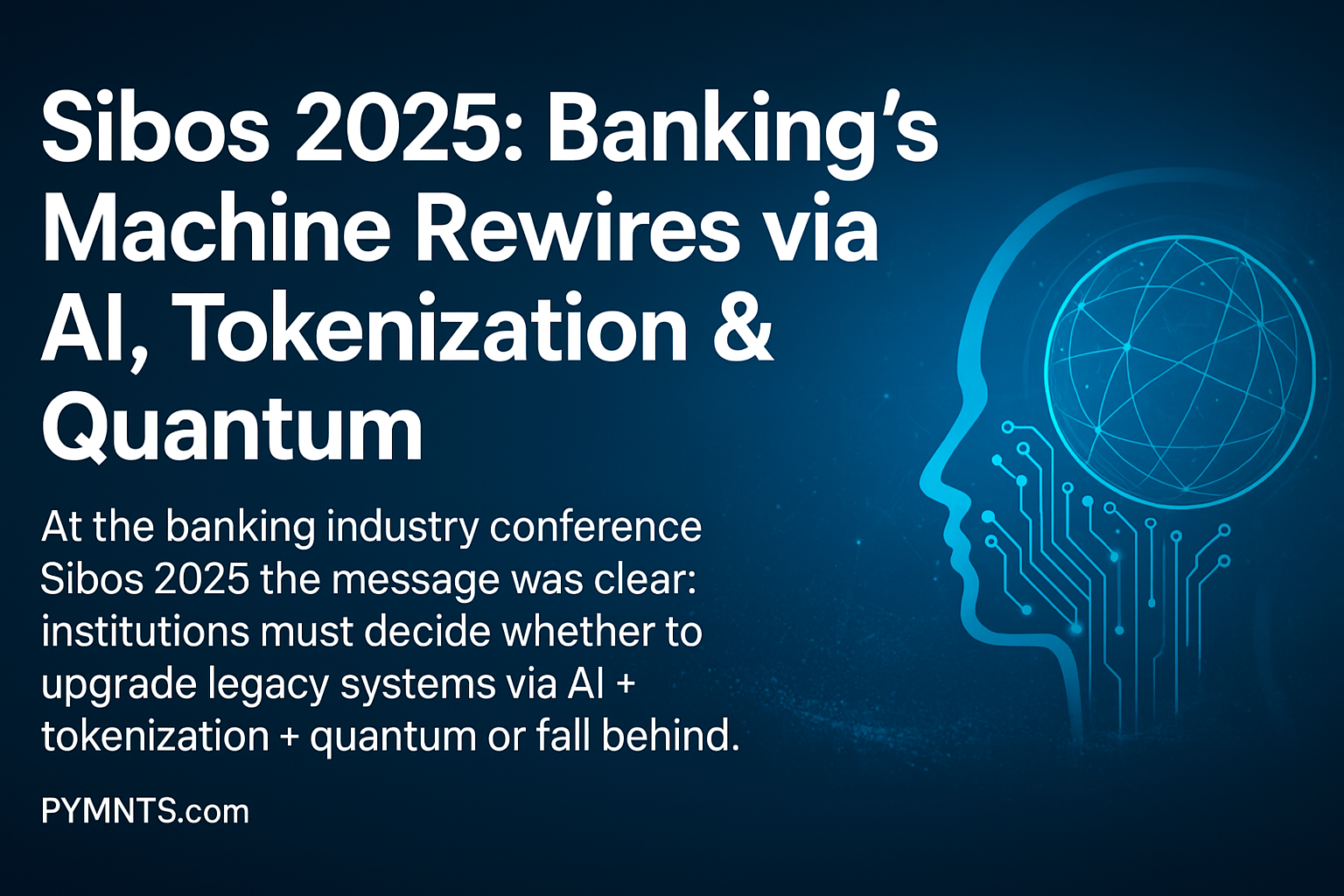At Sibos 2025, the global banking industry gathered under one recurring theme: transformation through intelligence. The message resonating through every keynote, fireside chat, and panel was clear — the financial world stands at an inflection point. Either legacy systems evolve through artificial intelligence, tokenization, and quantum computing, or the industry risks obsolescence.
For decades, banks have built their infrastructure on patchwork systems — reliable, but rigid and outdated in a world where data moves at light speed. Sibos 2025 made it clear that this status quo is no longer sustainable. With AI reshaping everything from fraud detection to personalized finance, tokenization redefining asset ownership, and quantum computing promising to shatter today’s processing limits, the era of incremental upgrades is over.
Executives from across the globe discussed how AI is moving from experimentation to execution. Banks like HSBC and JP Morgan showcased AI copilots that automate compliance workflows and enhance real-time decision-making. Others demonstrated how tokenization — the process of representing real-world assets as digital tokens — is opening up new liquidity streams for private credit, commodities, and even sustainability-linked bonds.
Quantum computing, still in its early but exponential phase, drew equal attention. Institutions see it not just as a cybersecurity challenge but as a tool for optimization — for portfolio modeling, settlement prediction, and risk analysis at scales once unimaginable. The idea of a “quantum-ready” bank is no longer theoretical.
But Sibos wasn’t just about technology. It was about strategy and culture. How can banks build trust in AI models? Who owns the customer experience in a decentralized financial future? And how can legacy institutions collaborate with fintechs, instead of competing head-on?
PYMNTS.com captured the event’s sentiment best: “Institutions must decide whether to rewire through AI, tokenization, and quantum — or be rewired by the market itself.”
Sibos 2025 closed with a clear mandate. The future of finance will not be built by those who wait for certainty. It will be led by those who embrace intelligent transformation — not as a project, but as a continuous process of reinvention.




